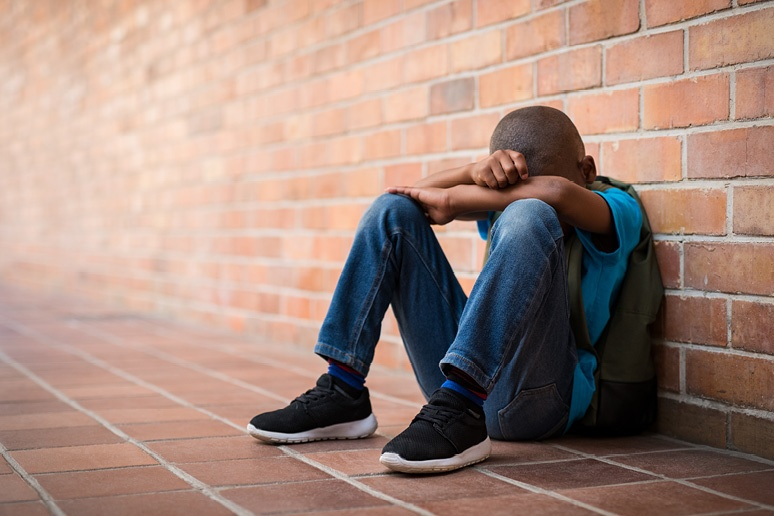According to the National Center for Educational Statistics, roughly one out of every five students experiences bullying. Bullying can have serious consequences. In a 2017 report by the Centers for Disease Control (CDC), bullying was said to put children at risk for "physical injury, social and emotional distress, self-harm, and even death. It also increases the risk of depression, anxiety, sleep difficulties, lower academic achievement, and dropping out of school."
If bullying, discrimination, or other issues are preventing your child from getting the quality education he or she deserves, what should you do? In certain, severe cases, a qualified education attorney may be of help.
Is Bullying Illegal?
Unfortunately, there is currently no federal law that specifically prevents bullying. However, bullying often overlaps with unlawful discrimination based on race, sex, disability, religion, and other protected characteristics. When this occurs, federal civil rights laws come into play. Even if bullying doesn’t cross the line into discrimination, it can be severely detrimental for a child. As such, schools are obligated by federal law to address behavior that:
- Becomes severe or pervasive;
- Creates a hostile environment for the student; or
- Is based on the student’s race, religion, sex, or other protected characteristic.
Essentially, when bullying crosses the line and becomes "disability harassment,” it is deemed illegal under Section 504 of the Rehabilitation Act of 1973, Title II of the Americans with Disabilities Act of 1990, and the Individuals with Disabilities Education Act (IDEA).
The U.S. Department of Education’s definition of disability harassment is "intimidation or abusive behavior toward a student based on disability that creates a hostile environment by interfering with or denying a student's participation in or receipt of benefits, services, or opportunities in the institution's program.”
How to Tell If Your Child Is Being Bullied
Bullying comes in all forms, but its legal definition is any verbal, mental, or physical acts committed by one student to harass, intimidate, or harm another. The warning signs below may indicate that your child is a victim of bullying. Consider something might be wrong if your child:
- Withdraws from normal social activities at home and at school;
- Stops enjoying school;
- Frequently asks to stay home from school;
- Starts performing poorly on grades and assignments;
- Appears moody or depressed;
- Seems increasingly insecure;
- Has unexplained bruises, bumps, or cuts on multiple occasions;
- Suffers a considerable change in eating habits;
- Changes his/her route to school;
- Has difficulty sleeping, or begins having nightmares; or
- Frequently complains of headaches and stomachaches.
If you notice any of the above symptoms, you may wish to discuss bullying with your child. If you believe that your child is being bullied, it is in your best interest to seek legal counsel from an education lawyer.
At-Risk Children
While bullying can happen to any child, and it is not the fault of any child for being a target of his or her peers, certain children are more likely to be bullied than others. According to StopBullying.gov, "some groups—such as lesbian, gay, bisexual, transgender or questioning (LGBTQ) youth, youth with disabilities, and socially isolated youth—may be at an increased risk of being bullied," as are children perceived to be different, unable to defend themselves, or who are new to school. The following conditions may also put a child at increased risk of bullying:
- Children with Attention Deficit Hyperactivity Disorder (ADHD).
- Children with conditions that affect their physical appearances, such as muscular dystrophy and cerebral palsy.
- Children who are overweight.
- Children who must use insulin to manage diabetes.
- Children who stutter.
What Can an Education Lawyer Do?
If you believe that your child has been the victim of bullying or any type of discrimination or harassment at school, an education lawyer may be able to help. Education lawyers generally specialize in one or more of the following areas:
- Civil rights.
- Student safety.
- Education reform.
- Special education.
- School governance.
If, for example, you want to contest a certain school rule because you believe it violates a student’s civil rights, an education lawyer can file the necessary petitions, negotiate with the school board, and represent you in court if necessary.
Should I Hire an Education Lawyer?
If you have a school-age child, an education lawyer may be helpful in any of the following situations:
- Your school refused to make reasonable accommodations for your child with special needs.
- You wish to contest a school rule or regulation.
- The school has unjustly suspended or expelled your child.
- A staff member has discriminated against your child.
Your outcome will depend heavily on the specifics of your unique case. That being said, if your child is suffering due to bullying, an education lawyer is likely to be the most qualified to ensure that your child’s rights are protected. No child should suffer in silence. If your child is being bullied, particularly if the bullying is focused on your child’s disability, consult with an experienced education attorney today.
 By Amy Carst,
By Amy Carst, 

